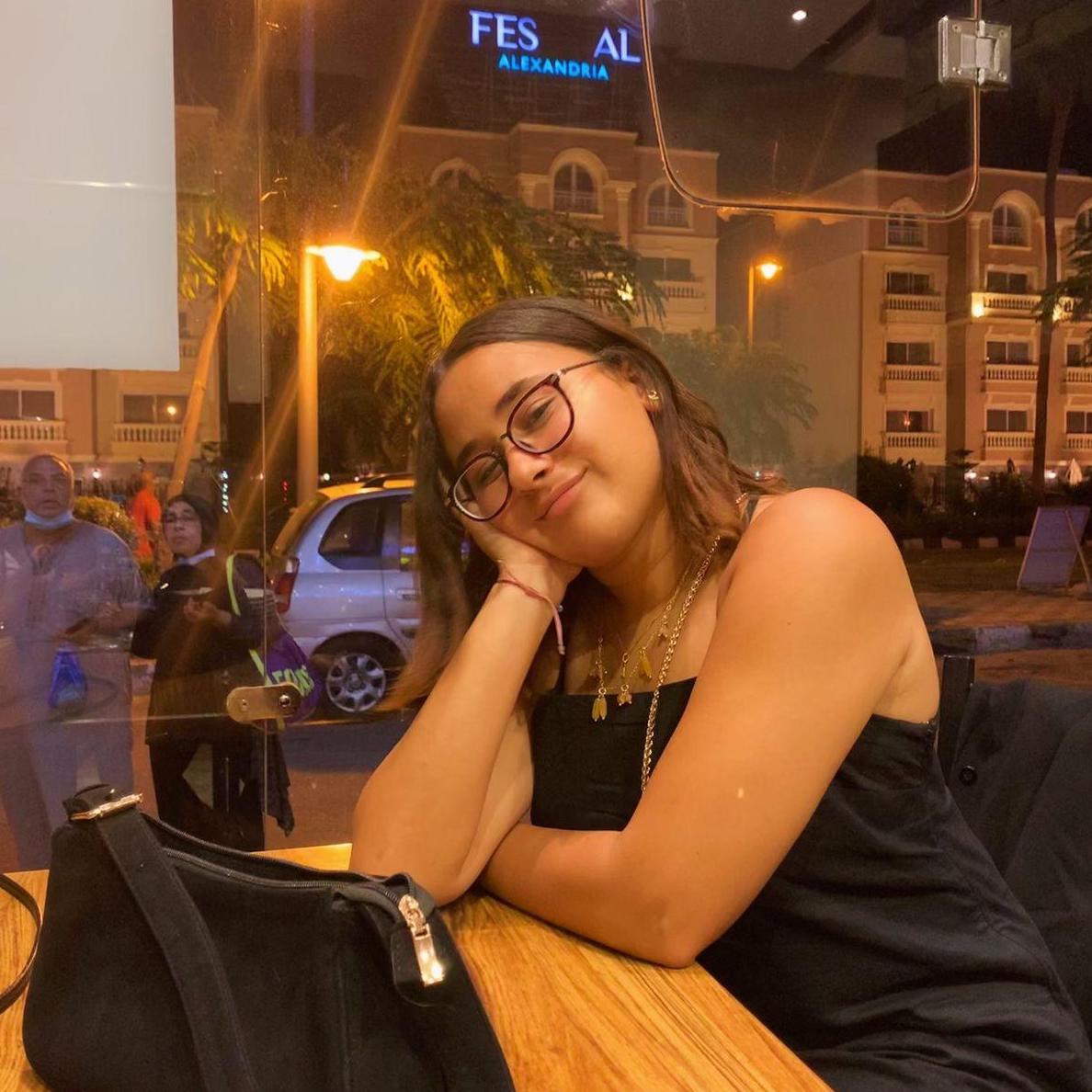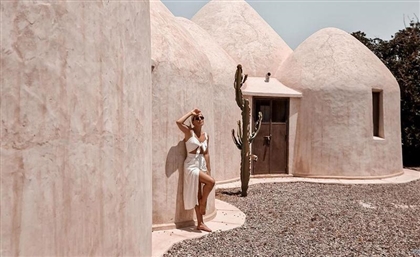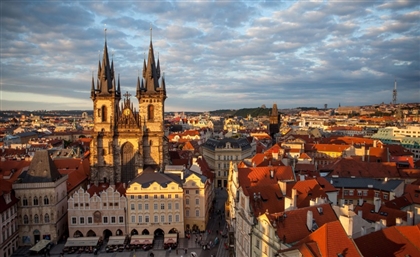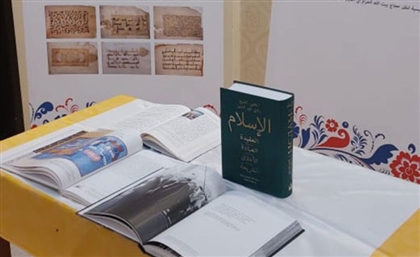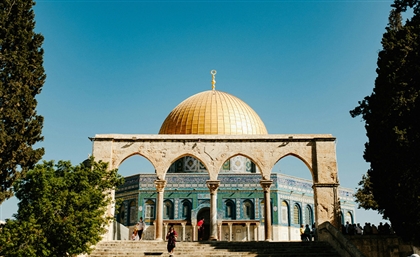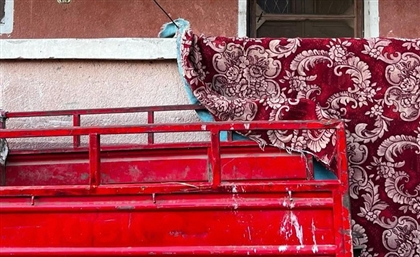A Labour of Love: Libyan Label Medina is Anything But Traditional
As we all have come to learn, true beauty lies in the asymmetrical details you can’t hold a ruler up to.

In the Sahara, little is symmetrical. Nature generally pays no mind to the silly rules of mirroring and symmetry and, seeing as the Middle East is largely, where uncolonised, untouched by man, it maintains its asymmetrical beauty in contrast with the West. These differences do not mean much to Mabruk Ali, the young Libyan designer behind Medina, on the conscious level, but they might have had a more subtle role to play in his fascination with just slightly lopsided fashion.
That being said, the primary interests of Medina lie not in the culture from which it was born, despite the current trends of reclamation across the region, but in the unconventionality of its pieces. Medina is, after all, a city; it is more concerned with day-to-day details, buildings, silhouettes - paying little to no mind to the underlying culture that brings it all together.
“While I’m invested in designing primarily innovative pieces,” recounts Mabruk, the brand’s founder, “aspects of my culture such as the rich colours of the natural landscapes, the fit of the thobe, traditional garments like the ‘zboon’ and embroidery, find their way naturally into my designs.”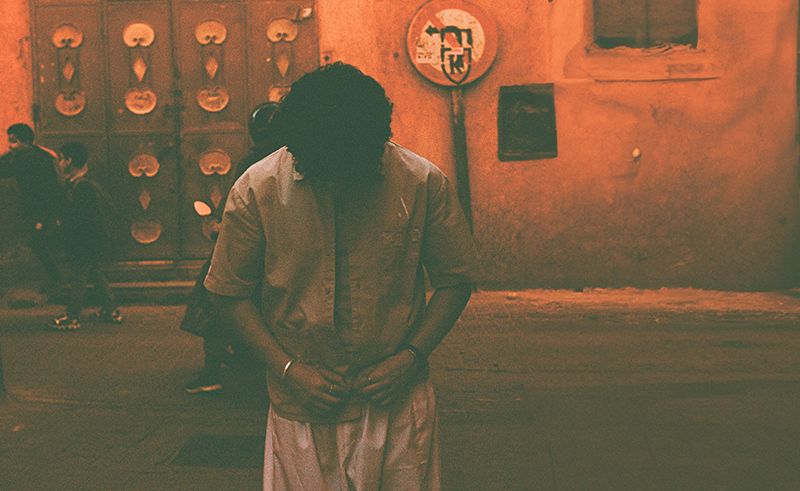 Mabruk Ali was born Libyan and raised in London, and his upbringing, both general and stylistic, was far from conventional. “My background in fashion is nontraditional; it comes from the streets. It was in skate culture that I was first exposed to new brands and style concepts that encouraged me to explore garments as a reflection of myself.”
Mabruk Ali was born Libyan and raised in London, and his upbringing, both general and stylistic, was far from conventional. “My background in fashion is nontraditional; it comes from the streets. It was in skate culture that I was first exposed to new brands and style concepts that encouraged me to explore garments as a reflection of myself.”
Bit by bit, Mabruk realised that although he did not look like the next person in the fashion industry, his conversations in the sphere of style taught him that he had something to bring to the table. “First and foremost I design pieces that I would love to wear, and represent a combination of aspects that I love about fashion. The patchwork, asymmetry, proportional cuts and boxy fits I loved became seasoned by and not centred around my culture.”
According to Mabruk, Libya - namely Tripoli, the capital city where Mabruk’s roots lie - makes its way into his designs in all kinds of ways. The boxy cut of the zboon, the comfort of the thobe, and the skyscraper silhouette of Tripoli embroidered on Medina’s first collection of asymmetrical shirts stand testament to Mabruk’s love.
What is less apparent, however, is that Medina is also a love letter, yet in progress, to the hustle and bustle of the cities of the SWANA region. “Growing up in a smaller town, I envisioned medinas like London and New York as a hub for music and fashion trends that inspired me from a young age. Medina will truly encapsulate its namesake when I begin to create pieces inspired by different medinas around the SWANA region. The unique experience that each individual city encapsulates intrigues me.”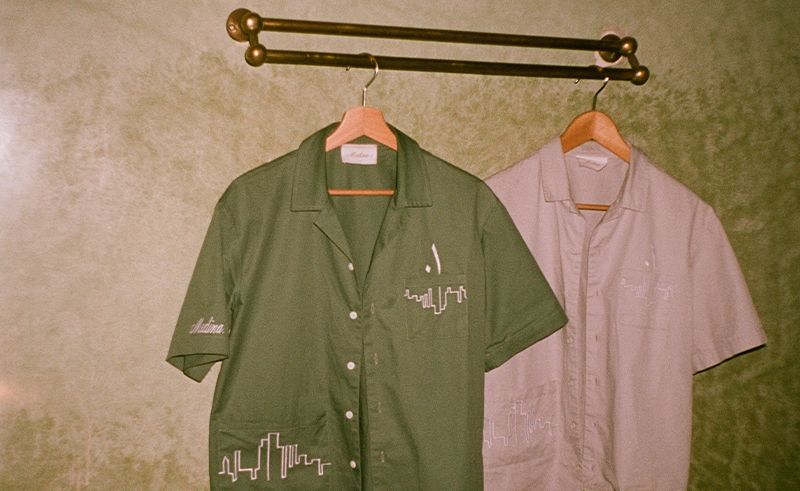 The name ‘Medina’ was specifically chosen for its universal comprehensibility. “I wanted the brand to have an Arabic name that was universal to all. Understood from North Africa to Europe, Medina (city) felt right.”
The name ‘Medina’ was specifically chosen for its universal comprehensibility. “I wanted the brand to have an Arabic name that was universal to all. Understood from North Africa to Europe, Medina (city) felt right.”
The homage Medina aims to pay to SWANA cities is more than stylistic; Mabruk aims to “centralise production in North Africa - a way to align the inspiration of the brand with the materialisation of the products and actively support the local economy.” At present, Medina functions where it needs to, as Mabruk reaches to various corners of the world to source material from places that specialise in its production.
The asymmetry, it seems, was manufactured in the heart of our designer. “Manipulating the way a piece of clothing looks through asymmetry was a way for me to put my mark on looks growing up,” Mabruk explains, when we were caught puzzledly gaping at the unique skew of his designs. “Now that I have my own label and can produce pieces I like, I felt it natural to return to the asymmetric cut.”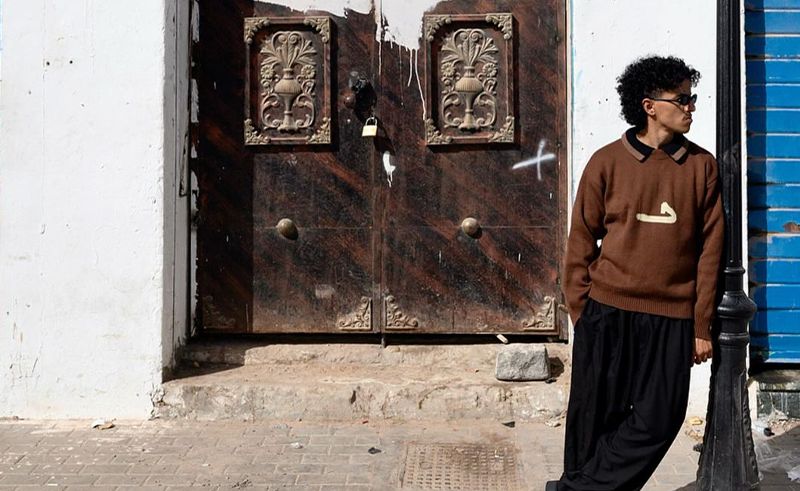 Despite Mabruk’s love for the uneven, the designer’s favourite Medina piece (a tough choice, surely) is in fact relatively symmetrical. The long-sleeved crochet shirt, a muted beige button-up that speaks in knitted large, blossoming flowers, is an integral part of his brand because “the embroidered logo is actually my mother’s handwriting. It was one of her ideas for my logo when I first started out, and I wanted to bring it back for a drop that I really loved.”
Despite Mabruk’s love for the uneven, the designer’s favourite Medina piece (a tough choice, surely) is in fact relatively symmetrical. The long-sleeved crochet shirt, a muted beige button-up that speaks in knitted large, blossoming flowers, is an integral part of his brand because “the embroidered logo is actually my mother’s handwriting. It was one of her ideas for my logo when I first started out, and I wanted to bring it back for a drop that I really loved.”
Given the tireless work that is invested into the birth of every design, every Medina piece is a favourite - how else would one regard a label that symbolises, in its entirety, a labour of love?



